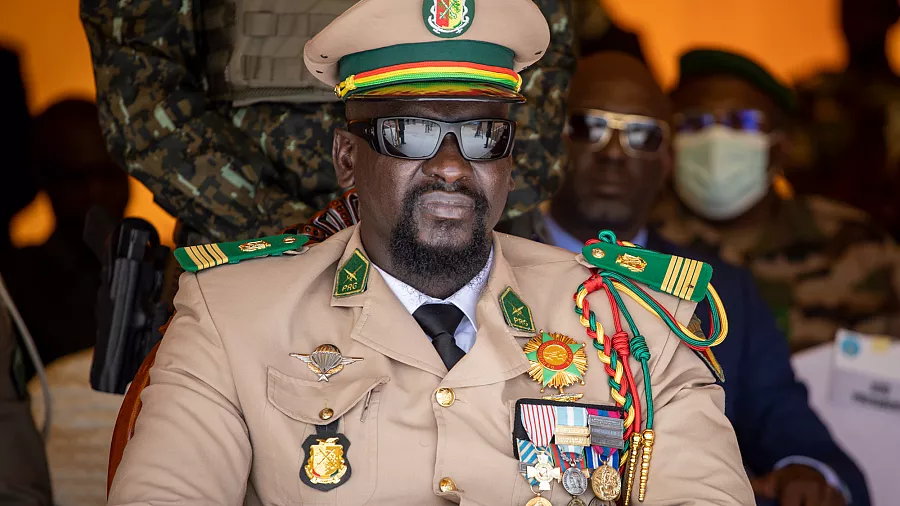Guinea’s junta rallies ministers nationwide To sell new constitution ahead of controversial referendum

With just two months left until a pivotal national referendum, Guinea’s ruling military junta has launched an aggressive public campaign aimed at garnering support for a new draft Constitution, described by authorities as “the best ever proposed to the people.”
In a highly choreographed effort, government ministers have been deployed in teams of four across the country to “explain, reassure, and convince” citizens of the draft’s value. The aim, according to officials, is to eliminate confusion and build trust in a process that has historically been marked by political instability and public skepticism.
“The goal is to listen to people’s concerns, gather expectations, but most of all, to deliver the message of reform,” said one government official. Public meetings are being held in mosques, markets, town halls, and community centers. In Conakry, the capital and the most politically charged region, Prime Minister Amadou Bah has taken on the sensitive mission of outreach himself.
The proposed Constitution is touted by the junta as a historic turning point for Guinea. “The most inclusive, modern, and rights-protective Constitution the country has ever known,” officials claim. Key proposals include strict presidential term limits, a rebalancing of power among the executive, legislative, and judicial branches, stronger fundamental rights, expanded decentralization, and explicit recognition of the rights of women and youth.
Although the full text remains unavailable to most citizens, these core elements have been highlighted throughout the campaign. The government insists this is more than a legal revision—it’s a reimagining of Guinea’s national pact.
Still, the choice of a referendum—scheduled for September 21—as the method of adoption poses a political risk. While only a simple majority is legally required, low turnout, regional disparities in the vote, or perceived manipulation could severely undermine the draft’s legitimacy.
Critics warn that the campaign, dominated solely by the ruling authorities, lacks the plurality of voices necessary for a healthy democratic debate.
“Can a government-led outreach be considered neutral?” ask members of civil society. “Where is the space for critical or even skeptical opinions?”
The entire process—from drafting to promotion to voter mobilization—has been orchestrated exclusively by the junta, raising deeper questions about the democratic credibility of the effort.
The stakes are high: a successful “yes” vote could pave the way for national elections and a potential return to civilian rule. A failed or contested outcome, however, could derail the fragile transition entirely.
As September 21 approaches, Guinea stands at a political crossroads. The nation will not only vote on a Constitution—but on the trust it places in its leaders, and on the vision it chooses for its democratic future.
About The Author
dailymailafric
I am an avid African news observer, and an active member of Daily Mail Africa.
I’m Passionate about staying informed on diverse topics across the continent,
I actively contribute to publishing on political, economic and cultural developments in Africa.



